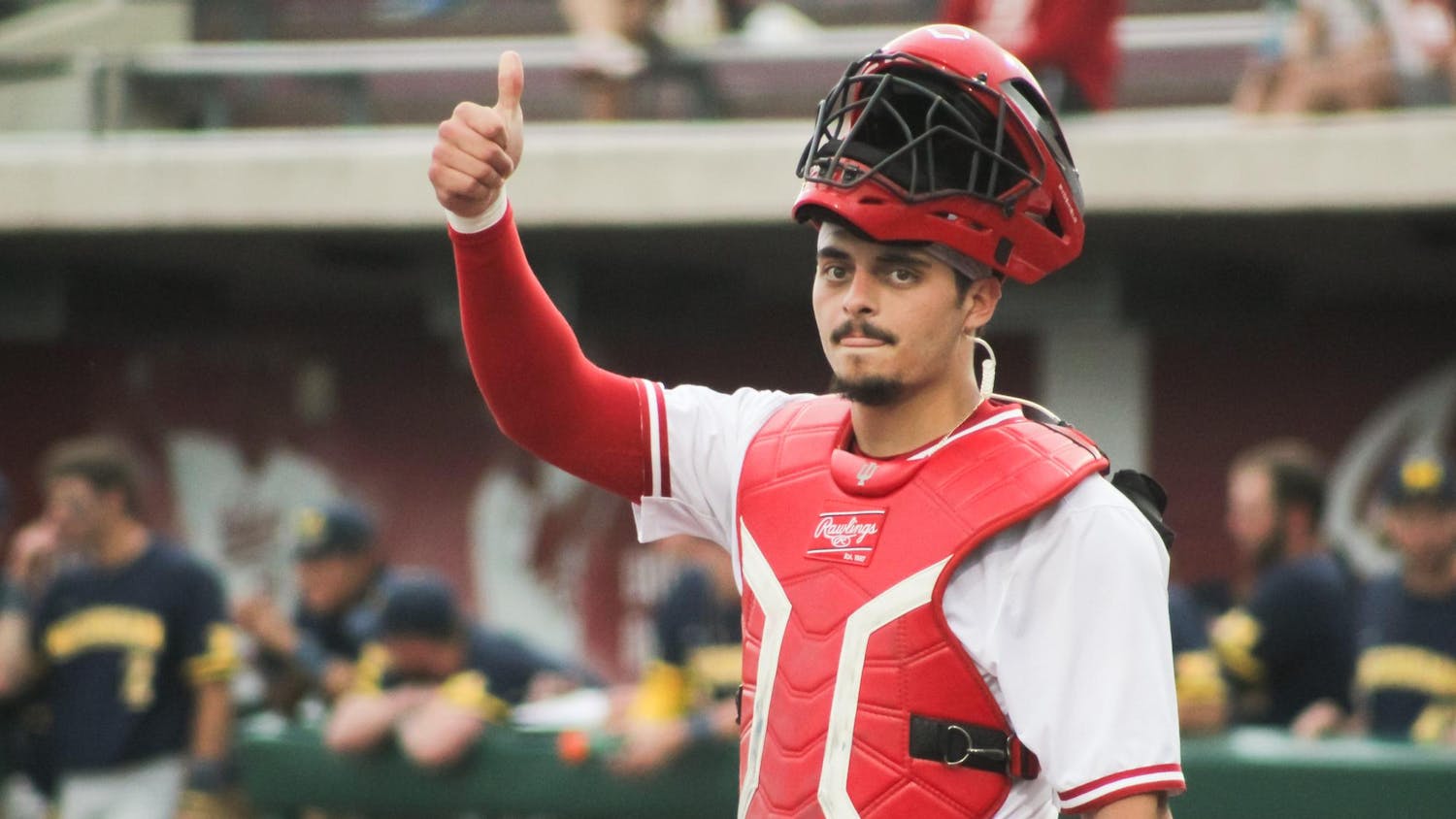Eli Lilly cancer research scientists gave a free lecture entitled "How does it impact us all?" at Alumni Hall Saturday afternoon. The lecture was part of a week-long series of events organized by the Phi Beta Sigma fraternity to raise money for the American Cancer Society. \nSophomore Yves Niyikiza, social chair for Phi Beta Sigma, who organized the events, said cancer affects everyone in one way or another.\n"It's a subtle monster that is prevalent in all of our lives," Niyikiza said.\nNiyikiza introduced the two guest speakers: his father Dr. Clet Niyikiza, senior research scientist and consultant and the Oncology Applied Genomics Team Leader at Eli Lilly and Dr. Kerry Blanchard, head of Cancer Research at Eli Lilly. \nBlanchard, who received his Ph.D. at IU, started off his discussion by giving thanks to IU's own chemistry teacher, John P. Richardson, whom Blanchard said affected him deeply.\n"He opened up his laboratory, his mind, and his heart to me when I was an undergraduate," Blanchard said. "I encourage you to seek out your professors. They are willing, able and talented mentors."\nBlanchard went on to warn the students of the dangers of smoking, in regard to cancer. His projector displayed a graph which showed lung cancer in males rises almost exactly parallel to the rise of tobacco advertising dollars spent in America. \n"More than 500 people die a day of lung cancer," Blanchard said. "That's like a 747 crashing every day. If that occurred, it would take only a few days for people to stop flying."\nBlanchard then discussed the many misconceptions Americans have about cancer. Among these are "most cancer is inherited," "most cancer is incurable," and "most cancer is caused by environmental or occupational exposures."\nNext, he revealed what the causes of cancer actually are, citing mutagenic events such as atomic bomb exposure, asbestos and tobacco, and the factors of aging.\n"We have 100 trillion cells in our body and of those cells we have 10,000 mutations per cell per day," Blanchard said. "Most of the cells are corrected or die, so it doesn't make a difference, unless it mutates a stem cell. But, age and longevity increase the chances of cancer."\nBlanchard also noted the advances made in cancer technology. \n"We studied cellular biology, but we didn't study cancer," Blanchard said. "Now we are studying cancer in patients instead of in a petri dish."\nAnother advance science has made is the involvement of computers, which Blanchard said is still a setback.\n"When I got my first Mac computer, it had only 20 MB of memory," Blanchard said. "Now some of the information we gather on cancer takes almost a GB of memory. The question is how do we make an excel spreadsheet 1000 by 1000 for DNA. We can't read such a document."\nThe next lecturer, Dr. Niyikiza, spoke about the importance of genetics in cancer research.\nDr. Niyikiza, a mathematician and native of Rwanda, spoke on the history of genetics and even brought up James D. Watson, an IU connection in the field of science. Watson was accredited with discovering the human DNA is in a double helix shape.\nThrough pharmocogenomics, Dr. Niyikiza and his team at Eli Lilly are working on personalizing cancer medicine to people's genetic makeup.\n"We are trying to accumulate, through some genetic work, some patients who could benefit from the drug and those who don't," Dr. Niyikiza said. "There is no point in giving someone a drug that does nothing and sometimes it makes them worse."\nDr. Niyikiza talked about his experience at IU, where he also received his PhD. He said IU students of all disciplines need to be work together in cancer research. \n"Swain East, Swain West and Jordan Hall need to cooperate to increase these efforts," he said.\nHe noted that math, physics, biology, chemistry and business all factor into Eli Lilly's business.\n"It's sad to say that it is partially about money when it comes to medicine," Dr. Niyikiza said. \nBoth Blanchard and Dr. Niyikiza concluded their lectures with a plea to IU students to become aware of cancer research.\n"Stay in school and study cancer," Blanchard said.\nAmple time for questions were given and a high percentage of those present asked inquiries of the guest lecturers. Attendees of the lecture said they felt they learned quite a bit from the speakers.\n"I felt that it was educational," junior Serre Bonne said. "The odds that any of us will have cancer are amazing. If you look around the room and think that a third of the people present will have cancer at one point in their life, it makes you realize it has a major impact on our lives."\nThe members of Phi Beta Sigma organized this event as a service to the community. Other events that occurred throughout the week to raise money and awareness included "Sigma Unplugged" where fraternity member showcased their musical talents, a "Brotherhood Dinner" and the "Party 'til you blue in the face," a Sigma party.
Lecture gives only the facts about cancer
Get stories like this in your inbox
Subscribe





